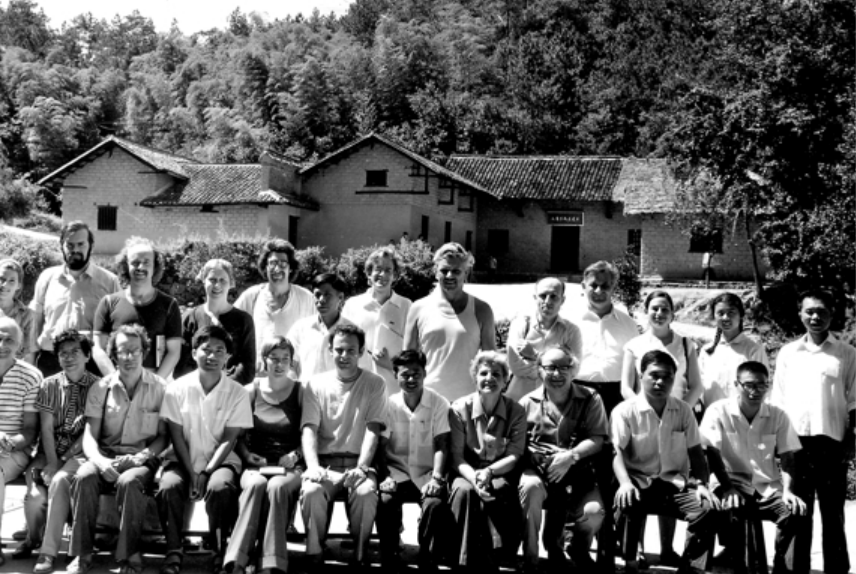Society marks 60 years of Sino-British friendship
Anniversary event in London recalls path to bonds, promotion of greater understanding


Tours to China
Almost all of SACU's core activities took shape in its first years including public conferences, film screenings, discussion meetings, Chinese language classes, and, most notably, its tours to China.
In the 1970s, these tours offered one of the few ways for ordinary Britons to see the country with their own eyes.
Frances Wood — a sinologist, historian, and former lead curator of the British Library's Chinese collections — joined SACU's first youth tour to China in 1971.
"What I liked most was simply seeing China and meeting people," she recalled. "I would wander out into the villages where we stayed, walk around and talk to people."
Wood, who had begun studying Chinese at Cambridge in 1967, admitted she "had lots of silly times" on the tours, visiting people's communes and trying to understand daily life.
"I remember once, near Hongqiqu in Henan province, I suddenly realized a whole village was following me because of my foreign appearance," she said. "They would ask, 'Have you eaten?' — and not knowing it was just a greeting, I would tell them everything I had eaten! I didn't realize I should simply answer, 'Yes, I have'."
That early curiosity never left her. Wood went on to publish widely on Chinese history, from Marco Polo and the Silk Road to the first emperor of China, always seeking to illuminate the bigger picture through individual stories.
From the 1980s, China's opening-up sparked wider public interest, and SACU — through its links with the Chinese People's Association for Friendship with Foreign Countries — was able to expand its tours. By 1985, the society said more than 10,000 people had been members at one time or another.
Keith Bennett, a researcher on China's international relations and co-founder of Friends of Socialist China, remembered vividly those years as SACU's most dynamic period.
In 1979, fresh out of the School of Oriental and African Studies, the University of London, where he studied Chinese history and politics, Bennett joined SACU to work on its publications. Two years later he embarked on his first visit to China with the society.
"I can still remember the itinerary," he said. "We flew to Hong Kong and went by train to Guangzhou (Guangdong province). Then we flew to Shanghai, and on to Hefei (Anhui province). From there we went out to the countryside and stayed on two communes, just as they were bringing in the household responsibility system … Finally, we made a long, long train journey — about 30 hours — from Nanjing (Jiangsu province) to Beijing."
Bennett has returned to China numerous times, and although he later moved on to other organizations, he has remained an SACU member.
Looking back on his first job, Bennett said he felt very lucky "because I could go to work every day to do something I believed in and loved doing". He added he was grateful for the "amazing people" he met — people who did brave things but remained modest about their contributions.
"Many organizations have come and gone, but not many organizations last for 60 years. So that's an achievement in itself," Bennett said.
























